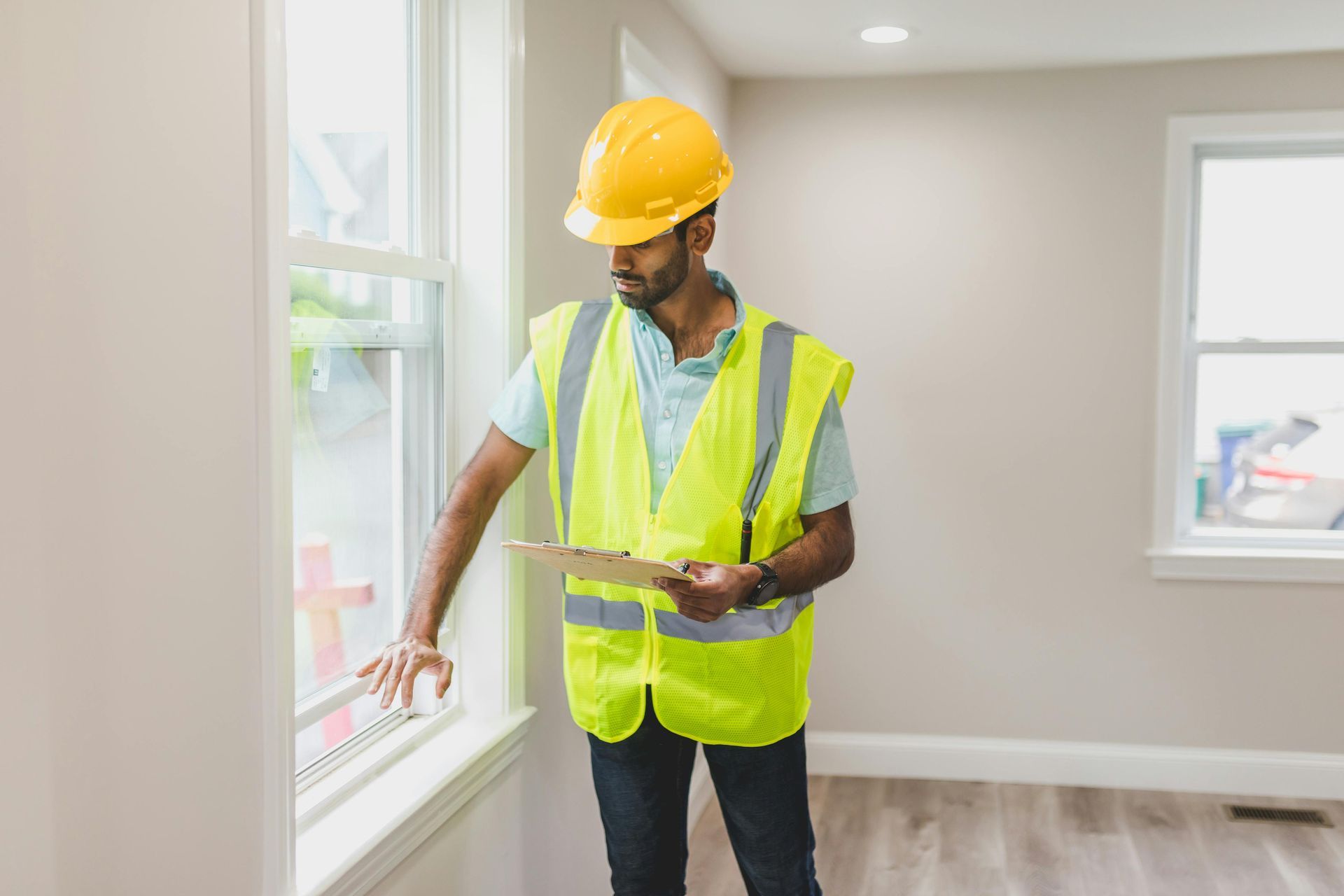The Complete Guide to Property Inspections: What Lenders Require Before Approving Your Home Loan
Buying a home is one of life’s biggest investments, and your lender wants to make sure that investment is sound before approving your mortgage. That’s where property inspections come in. These evaluations protect both you and your lender by ensuring the property meets safety standards, is worth the purchase price, and won’t pose unexpected financial risks down the road.

Understanding what inspections your lender will require can help you budget properly, avoid surprises, and move through the mortgage process more smoothly. The specific inspections needed depend on your loan type, property characteristics, and location. Let’s break down everything you need to know about lender-required property inspections.
The Foundation: Property Appraisal
Every mortgage lender requires a professional property appraisal, regardless of loan type or property. This isn’t technically an “inspection” in the traditional sense, but it’s the most critical evaluation your property will undergo.
A licensed appraiser will visit the property to assess its current market value, ensuring the home is worth at least as much as you’re paying for it. They’ll examine the property’s condition, compare it to recent sales of similar homes in the area, and provide a detailed report to your lender.
The appraisal protects both parties: it ensures you’re not overpaying for the home, and it guarantees the lender that their collateral (your home) is worth the loan amount. If the appraisal comes in lower than your purchase price, you may need to renegotiate with the seller, bring more money to closing, or find a different property.
Government-Backed Loan Inspections
FHA Loan Requirements
Federal Housing Administration (FHA) loans are popular among first-time homebuyers due to their low down payment requirements, but they come with additional inspection requirements beyond a standard appraisal.
FHA appraisers must ensure the property meets specific safety and habitability standards. They’ll look for issues like peeling paint in homes built before 1978 (potential lead hazard), proper handrails on stairs, functioning electrical systems, and adequate heating. Any safety concerns must be addressed before the loan can close.
For properties with well water, FHA requires water quality testing to ensure the water is safe for consumption. If the home has a septic system, an inspection may be required to verify it’s functioning properly.
VA Loan Inspections
Veterans Affairs (VA) loans offer excellent benefits for eligible service members and veterans, but they also have strict property requirements designed to ensure veterans are purchasing safe, move-in ready homes.
VA appraisers conduct what’s called a “Minimum Property Requirements” (MPR) inspection alongside the appraisal. This evaluation is more stringent than conventional loan requirements and covers structural soundness, electrical and plumbing systems, heating adequacy, and overall safety.
The property must have adequate space for living, sleeping, cooking, and sanitation. Any wood-destroying pest damage must be addressed, and the home must be free from hazardous materials. Unlike conventional loans, cosmetic issues may need to be fixed if they affect the property’s safety or habitability.
USDA Rural Development Loans
USDA loans, designed for rural and suburban homebuyers, require properties to be “decent, safe, and sanitary.” The USDA appraisal includes an inspection component that evaluates the home’s structural integrity, mechanical systems, and overall condition.
Well water testing is almost always required for USDA loans, as many rural properties rely on private wells. The water must meet EPA standards for safety and quality. Additionally, if the property has a septic system, it must be inspected to ensure proper function and compliance with local health department requirements.
Property-Specific Inspection Requirements
Manufactured and Mobile Homes
Financing manufactured or mobile homes requires specialized inspections beyond traditional property evaluations. Lenders need to verify the home is properly attached to a permanent foundation and meets current safety codes.
A structural engineer may need to inspect the foundation and tie-down systems. For older manufactured homes, additional inspections might be required to ensure compliance with current building codes and safety standards.
Condominiums and Townhomes
When financing a condominium or townhome, lenders often require a review of the homeowners association (HOA) and its financial health. This isn’t exactly an inspection of the physical property, but it’s a crucial evaluation that affects loan approval.
The HOA review examines the association’s budget, reserves, insurance coverage, and any pending litigation. Some lenders also require inspection of common areas and shared building systems to ensure they’re properly maintained.
Historic Properties
Homes listed on the National Register of Historic Places or located in historic districts may require specialized inspections. These evaluations ensure any renovations or repairs comply with historic preservation guidelines while meeting modern safety and habitability standards.
Properties with Unique Features
Homes with swimming pools, outbuildings, or unusual construction materials may require additional specialized inspections. For example, properties with solar panels might need electrical inspections to verify proper installation and code compliance.
Environmental and Location-Based Inspections
Flood Zone Certifications
If your property is located in or near a flood zone, your lender will require flood zone certification. This determines whether flood insurance is mandatory and helps establish appropriate insurance coverage levels.
An elevation certificate might be required for properties in high-risk flood areas. This detailed survey shows the property’s elevation relative to projected flood levels and can significantly impact insurance costs.
Pest and Termite Inspections
Wood-destroying pest inspections are commonly required, especially in areas prone to termite activity. A licensed pest control professional will examine the property for signs of current infestation or previous damage from termites, carpenter ants, or other wood-destroying insects.
Any active infestations must be treated, and structural damage must be repaired before closing. Some lenders also require a guarantee period during which the pest control company will retreat the property if insects return.
Well and Septic System Evaluations
Properties with private wells require water quality testing to ensure the water meets EPA safety standards. Tests typically screen for bacteria, nitrates, and other contaminants that could pose health risks.
Septic system inspections evaluate the entire waste management system, including the tank, distribution box, and drain field. The inspector will check for proper function, adequate capacity, and compliance with local health regulations.
Radon Testing
In areas with known radon issues, some lenders require radon testing. This colorless, odorless gas can accumulate in homes and pose serious health risks over time. If elevated radon levels are detected, mitigation systems must be installed before closing.
Timing and Cost Considerations
Most lender-required inspections occur after your offer is accepted but before closing. The timeline can vary, but typically:
• Appraisals are ordered within days of loan application
• Specialized inspections are scheduled once the appraisal is complete
• Environmental tests may take several days for results
• Any required repairs must be completed before closing
Costs for these inspections are typically paid by the borrower, though some may be negotiated as seller concessions. Budget for:
• Standard appraisal: $400-$600
• Pest inspection: $100-$300
• Well water testing: $200-$500
• Septic inspection: $300-$600
• Specialized inspections: varies widely
Preparing for Success
To ensure smooth sailing through the inspection process:
Research beforehand: Understand what inspections your loan type and property will require before making an offer.
Budget appropriately: Factor inspection costs into your closing expenses and potential repair costs into your overall budget.
Choose experienced professionals: Work with inspectors familiar with your loan type’s specific requirements.
Address issues promptly: If problems are identified, work quickly with qualified contractors to resolve them.
Communicate with your lender: Stay in touch with your loan officer about inspection schedules and results.
The Bottom Line
Property inspections required by lenders might seem overwhelming, but they serve an important purpose: protecting your investment and ensuring you’re purchasing a safe, habitable home. Understanding these requirements upfront helps you make informed decisions and navigate the mortgage process more confidently.
Remember that these inspections are separate from the general home inspection you might choose to have done for your own peace of mind. While lender-required inspections focus on meeting minimum standards for loan approval, a comprehensive home inspection can uncover additional issues you’ll want to know about as a homeowner.
Working with an experienced mortgage broker can help you understand exactly which inspections your specific situation will require and ensure you’re prepared for each step of the process. With proper preparation and realistic expectations, you’ll be well-equipped to handle whatever inspections come your way on the path to homeownership.
Start Your Mortgage Application with Treasure Coast Home Loans
Your Local Mortgage Broker
Mortgage Broker Port St. Lucie, Florida
Learn More About the Mortgage Process.
Check Out Our Google Verified Reviews










